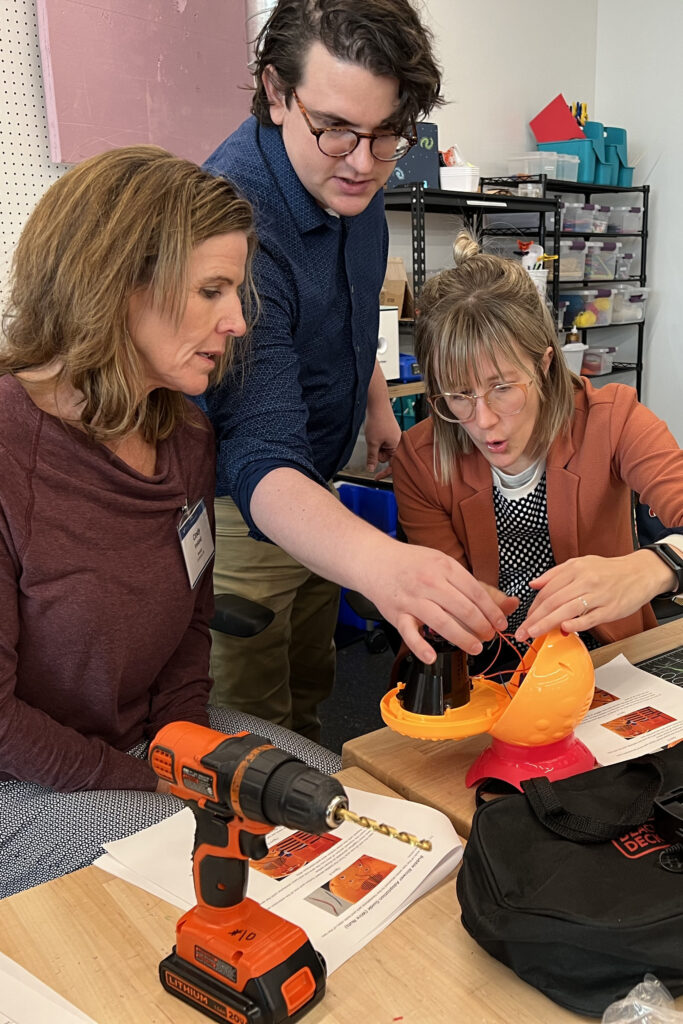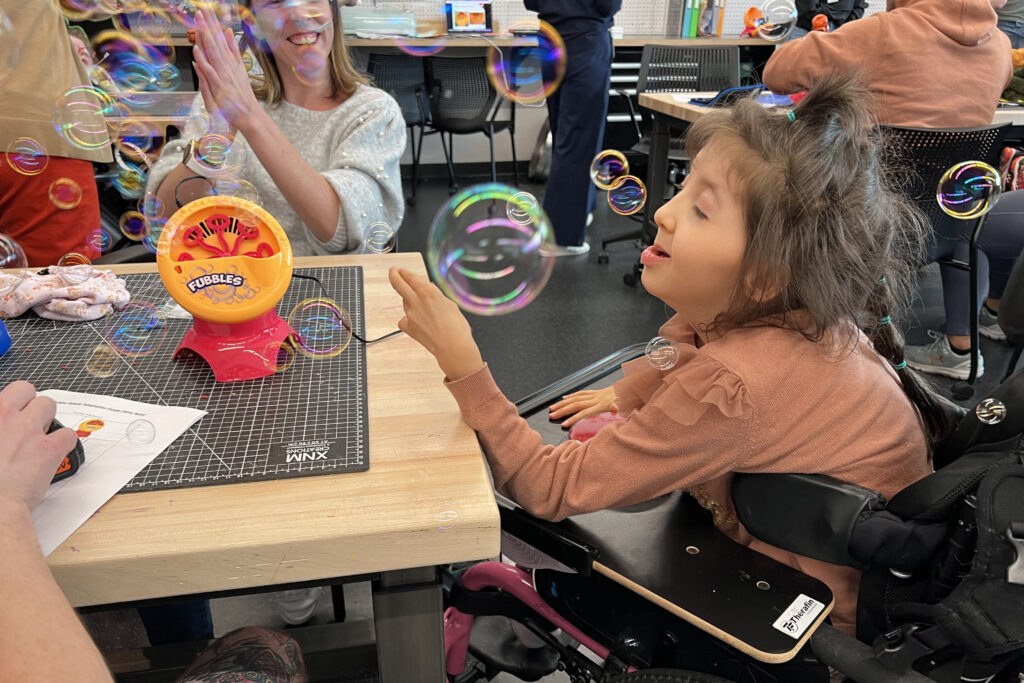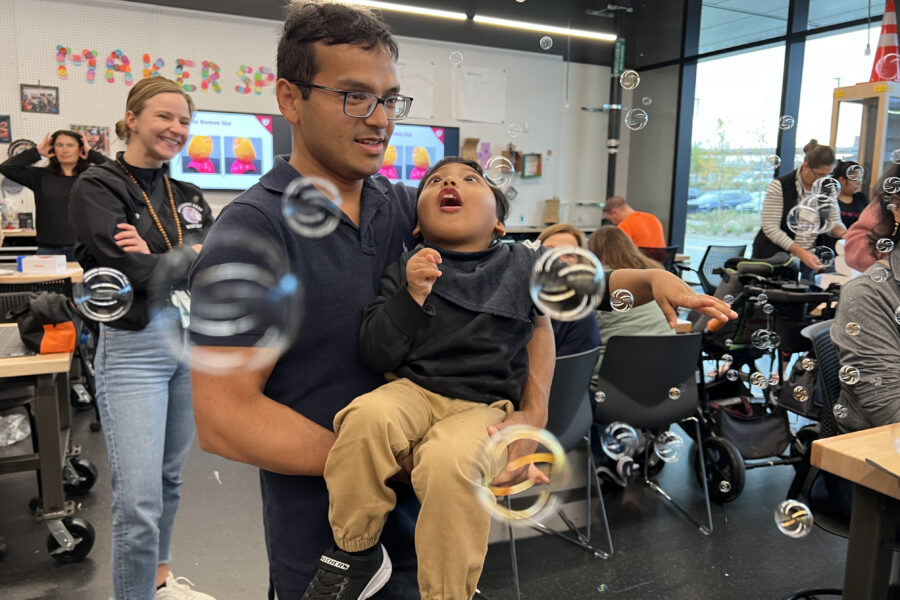Yuvaan Khadgi was startled when the bubble machine first started whirring.
But the 3-year-old’s nerves quickly turned to excitement when he figured out how to operate the bubble machine with one press of a large red button.
Yuvaan smiled as he rested his left hand on the button, sending scores of bubbles floating through the room. His younger brother, similarly delighted, weaved between tables to chase the bubbles.
The brothers and their parents participated in an adaptive toy workshop hosted by the Munroe-Meyer Institute at the Kiewit Luminarium in late October.
The workshop was a community advocacy event at the American Physical Therapy Association Pediatrics Annual Conference. The two adaptive toy sessions hosted a mix of families as well as physical therapists and occupational therapists.
Therapists came to the conference and workshop from the Omaha metro, rural Nebraska and across the country. They were able to help adapt a toy, with some able to take the toy home for their clients.
“They were excited to use their newly gained knowledge to adapt toys for children they work with in their communities, especially for those they have struggled to find toys for,” said Sara Garcia, physical therapist at MMI and workshop organizer.
The workshops served to highlight work that’s done at MMI beyond a clinical scope, Garcia said.
“Our end goal is that all kids can play,” Garcia said. “To see them have fun, that’s why we do what we do.”
The goal is to teach families and physical therapists the skills needed to adapt toys on their own, said MMI’s Jamie Gehring, PhD, who led the class.
Workshops, funded in part by the Munroe-Meyer Guild, are designed to teach families and physical therapists the skills needed to adapt toys on their own, Dr. Gehringer said.
Dr. Gehringer, who helped lead the classes, gave a quick presentation before wandering the space to offer help to families and physical therapists.

Each table was set up with a brand-new bubble machine, a red button, a drill and a handful of other tools and parts.
Kellie Gossman, DPT, an assistant professor at UNMC, and Cindy Ireland, a physical therapist from South Dakota, sought help at one point to be sure they had the wiring correct.
Dr. Gossman took the class to refresh some skills, particularly with wiring, to be able to adapt toys for patients at a clinic in Kearney.
“I can bridge that gap to open opportunities for little ones of all abilities to play,” she said. “Any time I can bring knowledge and unique switch toys like this back to the rural area is great.”
At retail, adaptive toys can set parents back between $70 and $100, Dr. Gehringer said.
“It’s exciting to teach people these skills,” he said. “If we train them to adapt their own toys, it’s maybe $30. It makes a huge difference.”
Natalie Bootin has dabbled with adapting toys on her own for 10-year-old Aurora’Jean Makinson. But the converters always broke.
Bootin and Jacob Mitchell hoped to learn to adapt toys themselves during the workshop, especially before the holidays.
Aurora’Jean — a “button expert,” according to Bootin — wasted no time triggering the newly adapted toy. Bootin and Mitchell applauded each time she sent bubbles flying.
“We really struggle with being able to get toys because they’re not made for kids with mobility issues,” Bootin said. “Being able to adapt toys for her means everything.”

